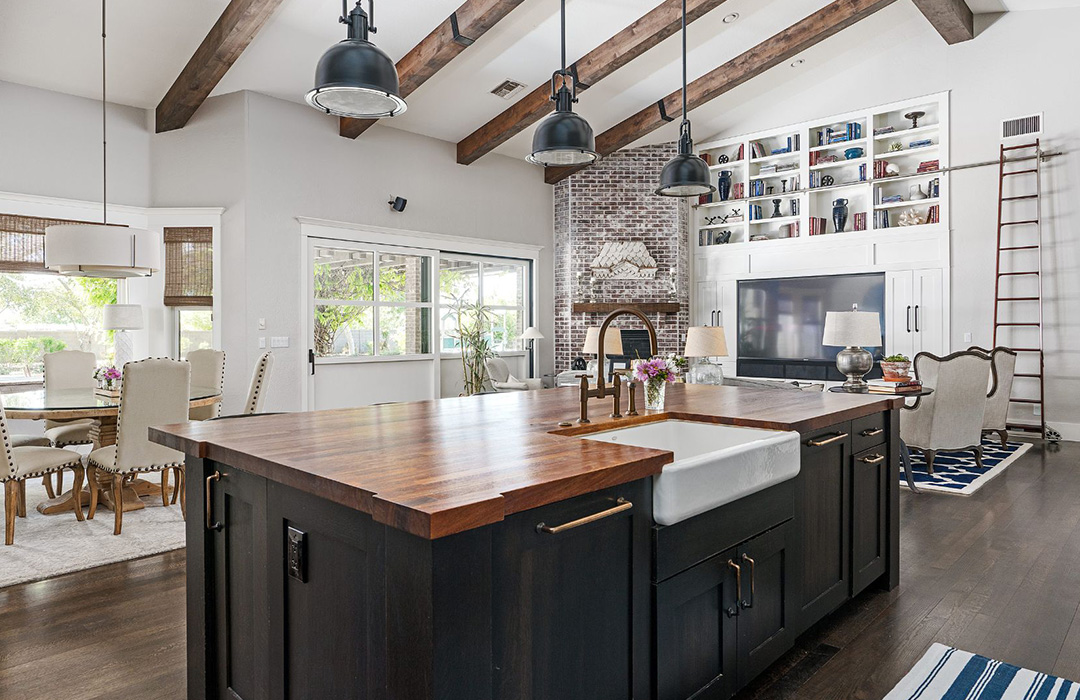Home remodeling can be an exciting endeavor, but it’s not without its challenges. From delays in project completion to unexpected costs, there are several common pain points that homeowners often face during the renovation process. However, with proper planning and communication, these issues can be avoided, ensuring a smoother and more enjoyable experience. By addressing these points head-on, you can minimize frustration, stay within budget, and achieve your dream home transformation.
The Most Common Home Renovation Mistakes
Ignoring necessary permits and regulations
One of the most common problems is ignoring the necessary permits and regulations. Many homeowners overlook this step, thinking they can get away with it or that it’s not important. However, failing to obtain the required permits can result in legal issues and fines down the line. It’s essential to check with your local authorities and ensure you have all the necessary paperwork in order before starting any renovation project.
Overlooking structural issues
Another common mistake during home renovations is overlooking structural issues. It may be tempting to focus solely on aesthetics, but neglecting potential underlying problems can lead to costly repairs in the future. Structural issues such as weak foundations or faulty wiring should be addressed early on to avoid more significant problems later. Hiring a professional inspector or contractor can help identify any potential concerns and ensure they are properly addressed before proceeding with your renovation plans.
Choosing low-quality materials
Selecting low-quality materials might seem like a cost-effective solution at first, but it can compromise the durability and longevity of your renovation. Cheap materials tend to wear out faster, requiring frequent replacements or repairs in the long run. Invest in high-quality materials that will withstand daily wear and tear, ensuring that your renovation stands the test of time.
Underestimating project timeframes
Underestimating the time required for a home renovation project is another common pitfall. Many people fail to consider unforeseen delays or complications that may arise during construction. This miscalculation can disrupt your daily routine and cause unnecessary stress. It’s crucial to allocate ample time for each phase of your renovation plan and factor in some buffer time for unexpected setbacks.
Importance Of Budget Control In Project Planning
Setting a realistic budget is crucial. It helps you prioritize expenses and avoid overspending, ensuring that you don’t end up with an empty wallet or unfinished projects. By setting clear financial boundaries, you can make informed decisions about where to allocate your funds.
Regularly tracking your expenses throughout the project is essential for maintaining budget control. This way, you can keep a close eye on how much money is being spent and ensure that it aligns with your allocated budget. It’s like keeping tabs on your spending habits – it prevents any surprises or unexpected costs from creeping up on you.
Researching cost-effective alternatives is another smart move to save money without compromising quality. Look for affordable materials, fixtures, and appliances that still meet your standards. For example, instead of splurging on high-end countertops, consider more budget-friendly options that offer a similar aesthetic appeal.
Consulting with professionals who have experience in home renovations can help estimate accurate costs for each aspect of the project. They have insights into common expenses associated with different types of remodeling work and can guide you accordingly. This way, you won’t be caught off guard by unforeseen expenses or hidden costs along the way.
Maintaining control over your budget during home remodeling ensures that you complete the project within your financial means while achieving the desired results. It allows you to enjoy the process without unnecessary stress about finances.
Ensuring Family Involvement And Support
Involving your family can make a significant difference in the overall success of the project. By including your loved ones in the process, you foster a sense of ownership and create a shared vision for the renovation. This not only strengthens family bonds but also ensures that everyone’s needs and preferences are considered.
To effectively involve your family members, assign specific tasks to each individual. By distributing responsibilities, you create a sense of teamwork and prevent any one person from feeling overwhelmed. For example, you can designate one family member to research design ideas, another to handle budgeting, and someone else to coordinate with contractors.
Seeking input from your family is crucial throughout the renovation process. Take the time to listen to their ideas and opinions. This will help ensure that everyone feels heard and valued. It’s important to remember that different family members may have varying needs or priorities. By considering these perspectives, you can reach an agreement that satisfies everyone.
By involving your family in the remodeling process, you not only create a stronger sense of unity but also benefit from their unique skills and perspectives. Together as a team, you can navigate any challenges that arise while creating a space that meets everyone’s needs.

Assessing The Scope Of Your Renovation Project
Before diving into your home remodeling project, it’s crucial to assess the scope of the work ahead. By evaluating your goals and priorities, you can determine which areas of your home need attention first. Consider future needs as well, such as potential changes in lifestyle or family size, to plan renovations that will accommodate these shifts.
Establishing clear objectives from the start is essential to prevent scope creep. Clearly define what you want to achieve with your renovation project and communicate this with all parties involved, including contractors, designers, and project managers. This ensures that everyone understands the desired outcome and helps keep the project on track.
To assess the scope effectively:
Evaluate Goals and Priorities
- Determine which areas of your home require immediate attention.
- Identify specific goals you want to achieve through renovations.
- Prioritize tasks based on urgency and importance.
Consider Future Needs
- Anticipate potential changes in lifestyle or family size.
- Plan renovations that can adapt to these future requirements.
- Ensure long-term functionality and practicality.
Living Arrangements
- Assess whether it’s possible to live on-site during renovations.
- Make arrangements for temporary accommodation if needed.
- Minimize disruptions by planning accordingly.
Clear Objectives
- Define clear objectives for your renovation project.
- Communicate these objectives with all stakeholders involved.
- Prevent scope creep by staying focused on the initial goals.
By carefully assessing the scope of your renovation project, considering future needs, and living arrangements, and establishing clear objectives, you’ll be better equipped for a successful remodeling journey without encountering common pain points along the way.
Choosing Between Remodeling And Buying A New Home
There are several factors to consider. Evaluating the cost of renovations versus the price of a new home is crucial in making an informed decision.
Assessing the emotional attachment you have to your current home can also play a significant role in your choice. Many homeowners have sentimental value attached to their houses, which may sway them towards remodeling rather than moving.
Financial considerations should not be overlooked either. Weighing the potential return on investment for renovations versus buying a new home can help guide your financial decision-making process. It’s important to assess whether the cost of remodeling will significantly increase the value of your property or if it would be more financially prudent to invest that money into purchasing a new home.
When deciding between remodeling and buying a new home, you should evaluate costs, emotional attachment, availability of suitable properties, and potential return on investment. Each situation is unique, so it’s essential to carefully weigh these factors before making a final decision.
Tips For Avoiding Common Remodeling Pitfalls
- Researching and hiring reputable contractors is crucial. By doing your due diligence, you can minimize the risk of poor workmanship or unfinished projects. Take the time to read reviews, ask for recommendations from friends and family, and check for proper licensing and insurance.
- Creating a detailed timeline with milestones is another essential step in avoiding common remodeling pitfalls. This will help keep your renovation project on schedule and ensure that all parties involved are aware of the expected timeframe.
- Regularly communicating with contractors throughout the remodeling process is key to avoiding misunderstandings and delays. Make sure everyone is aligned on expectations, changes, and concerns.
- Conducting thorough inspections at each stage of the renovation is vital to identifying any issues early on. This proactive approach can save you from costly fixes later down the line. Inspect the quality of materials used, check for any structural issues or code violations, and address any concerns promptly.
- Remember that home remodeling projects can be complex and may encounter unexpected challenges along the way. It’s important to remain flexible and adaptable as situations arise. By following these tips and staying proactive throughout the process, you’ll be better equipped to avoid common remodeling pitfalls.

Conclusion
By understanding the most common mistakes, managing your budget effectively, involving your family in the process, assessing the scope of your project, and considering whether to remodel or buy a new home, you’re already well on your way to a successful renovation journey.
But before you embark on this exciting adventure, remember that preparation is key. Take the time to plan meticulously and consider seeking professional advice when needed. Keep an open line of communication with your contractor and suppliers to ensure everyone is on the same page. Most importantly, stay patient and flexible throughout the process as unexpected hurdles may arise. With determination and proper planning, you can transform your house into a dream home that exceeds all expectations.
Remember, every challenge you encounter along the way is an opportunity for growth and improvement. Enjoy the journey as you create a space that truly reflects your style and enhances your quality of life.
Unleash Your Home’s Potential with Red White & Blue Construction!
Considering home remodeling? Look no further! Embark on a transformative journey where your home in Lafayette, CA, becomes the masterpiece you’ve always envisioned. With Red White & Blue Construction, every nook and cranny of your house transforms into an artful blend of elegance and functionality. Dive into state-of-the-art kitchen makeovers, luxurious bathroom revamps, or explore the possibilities of adding Accessory Dwelling Units (ADUs) and expansive room additions. Our reputation in the Bay Area stands testament to our commitment, expertise, and the unparalleled standards we uphold.
We’re more than just licensed contractors; we’re the architects of your dreams. With our transparent pricing and exceptional client engagement, you’re not just renovating; you’re reimagining, redefining, and revitalizing your space.
Choose Red White & Blue Construction. Craft the next chapter of your home story. Dive into Home Remodeling Excellence and reach out to us today!
Disclaimer
The materials available on this website are for informational and entertainment purposes only and not to provide advice. You should obtain advice concerning any particular issue or problem from a professional. You should not act or refrain from acting based on any content included in this site without seeking legal or other professional advice. The information presented on this website may not reflect the most current building developments. No action should be taken in reliance on the information on this website. We disclaim all liability concerning actions taken or not taken based on any or all of the contents of this site to the fullest extent permitted by law.





